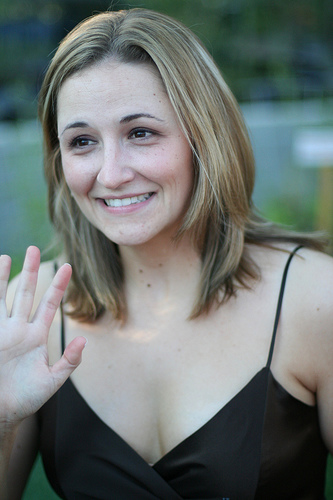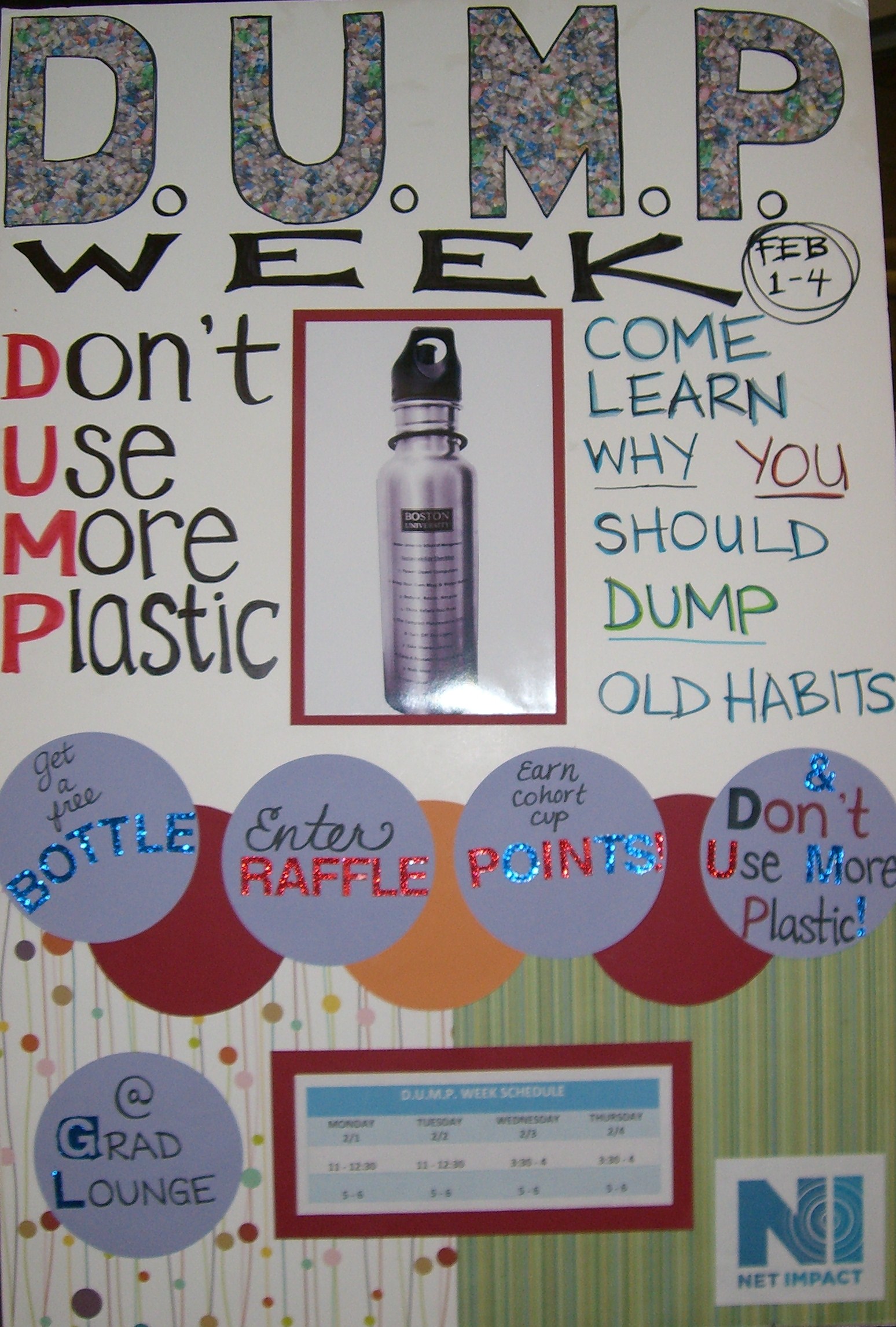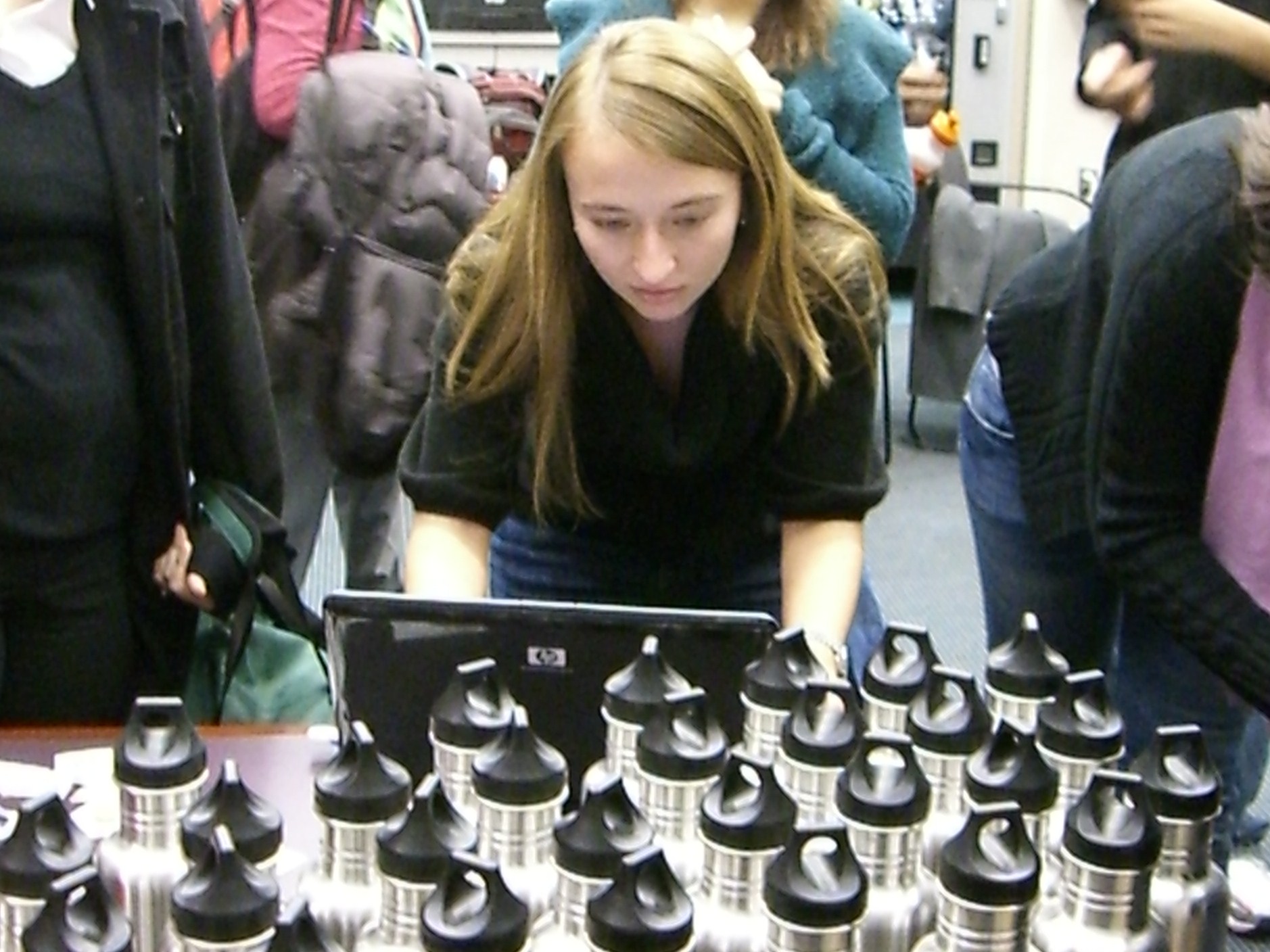Request from a CSR Job Seeker
/
I'm thrilled to announce that in two weeks I'll be graduating from business school!
As unbelievable as it sounds (even when I say it), the end of my MBA program is amazingly just around the corner. While it hasn’t always been fun – derivative equations in economics class come to mind – it has been an incredible two years of learning and 100% worth it.
Now with my diploma (almost) in hand, I’m ready to take all of my new knowledge and skills out into the big wide world and get to work.
The only problem? I need a job! Which is where my request for help comes in...
In past posts I’ve tried to stay away from obvious self-promotion – if only because I wanted the CSR stories and innovations to take center stage.
While this will almost always be true here on The Changebase, I also have to own up to the fact that I’m an MBA who’s done enough IT strategy coursework to understand the value of crowdsourcing.
Knowing that I'm lucky enough to have readers from all professions and areas of expertise, I was hoping to enlist your help in my job search. As you'll see below, I've taken a few paragraphs to outline who I am, what I do well, and how I might be able to help your organization with its CSR work.
And, if you like what you read and have some ideas or suggestions to share, of course I'd love to hear from you.
Who I Am: I’m a CSR strategy and communications specialist with a combined 7 years of experience in nonprofit fundraising, corporate philanthropy, marketing, and social media. As an MBA I have consulted with a number of corporate, agency and social enterprise clients on topics including sustainability strategy and reporting, stakeholder engagement, brand management, and consumer marketing. Curious to learn more? Check out my LinkedIn profile.
What I Do Well: While I like to think I’m pretty good at a number of different things, there are a few areas that I think are my core competencies:
CSR Strategy and Communications – I have deep subject-matter expertise and experience in CSR strategy and marketing, and I get especially excited about opportunities to help companies tell their CSR stories in ways that resonate with stakeholders and drive business value. Want an example? Check out this press release to learn more about a sustainability communications project I recently completed.
Social Media Strategy and Execution – Since starting my blog I have basically embedded myself in the social media world and, through thoughtful strategy (and lots of practice), I believe I’ve developed an approach to social media for CSR that is effective and successful. Want to see my social media work in action? Check out my Twitter feed – in just over a year I’ve built an engaged group of almost 1,200 followers through tactics that include developing a point of view, staying on message, and creating genuine conversations.
Research and Writing – Given my blog, it’s probably no surprise that I love to write. It turns out, though, that I also really enjoy doing research. Whether it’s gathering secondary data, creating surveys and analyzing results, or performing in-depth interviews, I have extensive hands-on experience with market research methods and tools. The best of all? I can turn that research into persuasive, actionable white papers for clients looking to create or maintain a thought leadership position in the CSR space.
People, People, People – It's safe to say that, in many ways, a successful CSR strategy hinges on whether you can build relationships and create allies both inside and outside your organization. Whether it's facilitating conversations, building partnerships, leading teams, or even engaging critics - you name it, I enjoy it. And I think I'm pretty good at it too.
How I Can Help You: I believe my experience and background in CSR, philanthropy and marketing can add value to the following kinds of organizations:
- Corporate brands that have CSR programs and/or a sustainability focus
- PR, communications, or consulting agencies that specialize in CSR marketing and strategy
- Start-ups with innovative business ideas for “doing good and doing well.”
Whether it's crafting a CSR communications strategy for your client; integrating social media into your corporate marketing portfolio; or developing a sustainability strategy for your new start-up, I know I have the skills and experience to help you get to where you want to go.
A few other details: as I mentioned, I graduate in two weeks and I’m able to start working shortly thereafter. Oh, and I’m focusing my search in the San Francisco Bay Area and the Pacific Northwest (Seattle, WA or Portland, OR).
So, what do you think? Are you looking for help strategizing, implementing, or growing your CSR program? Know someone who is?
Please feel free to contact me - I’d love to hear more and talk through specific ways that I can help you and your company achieve your CSR goals.
Thanks again for all of the support you have given me throughout my MBA journey. It’s an exciting time and I’m really looking forward to starting my next adventure!
-Ashley


 This weekend I was lucky enough to be featured as a panelist at the
This weekend I was lucky enough to be featured as a panelist at the 
 When it comes to the crisis of
When it comes to the crisis of 